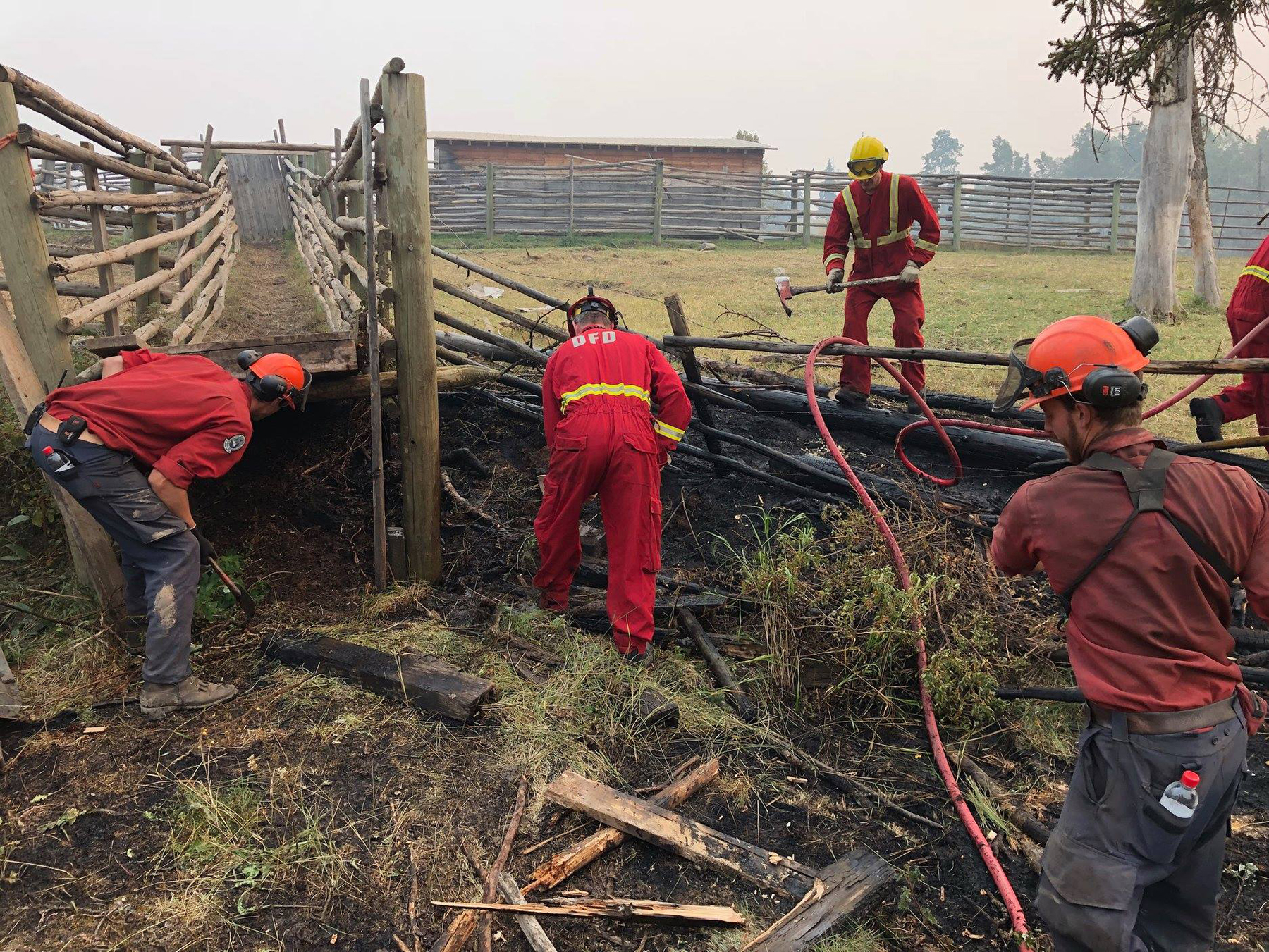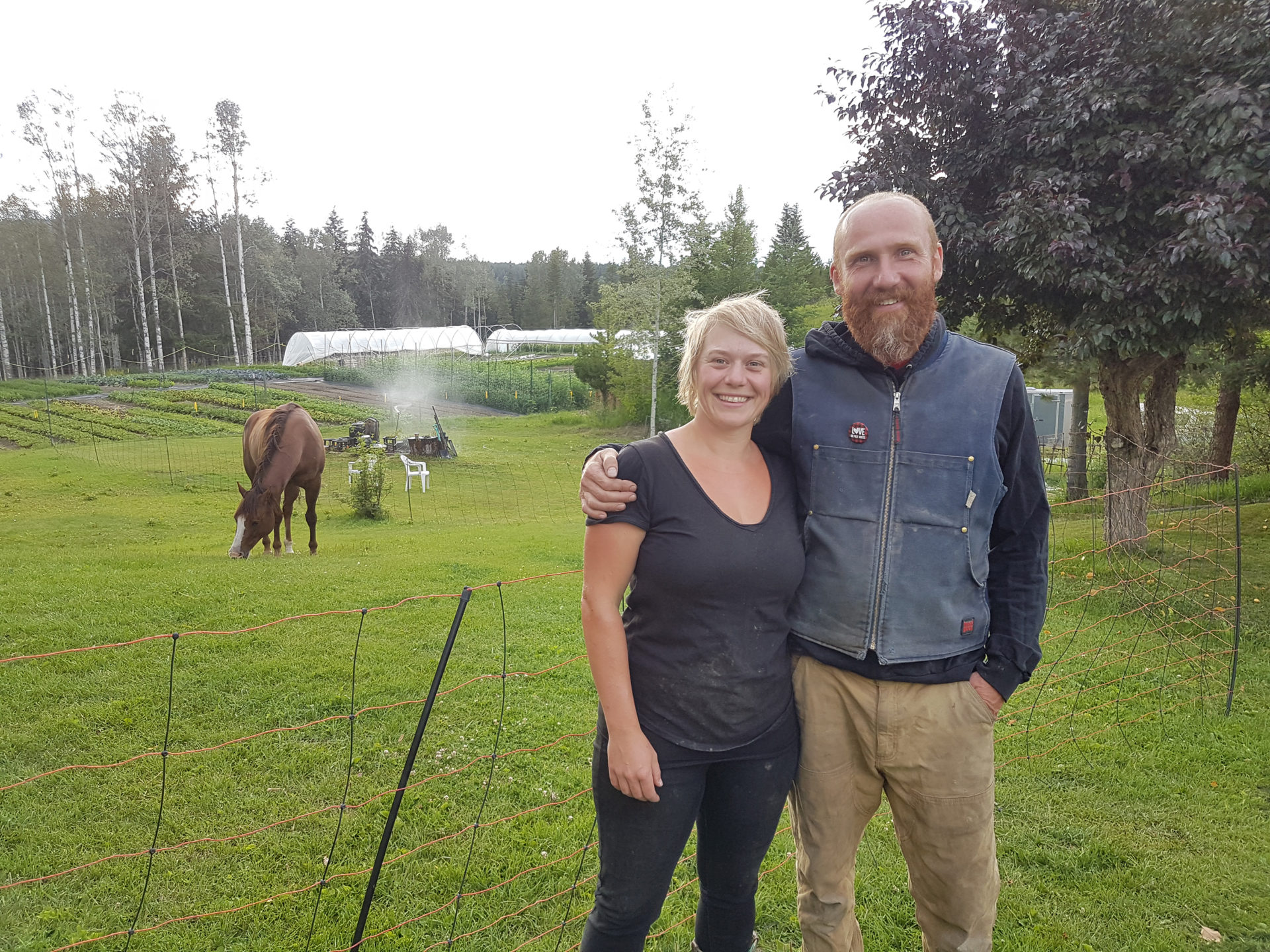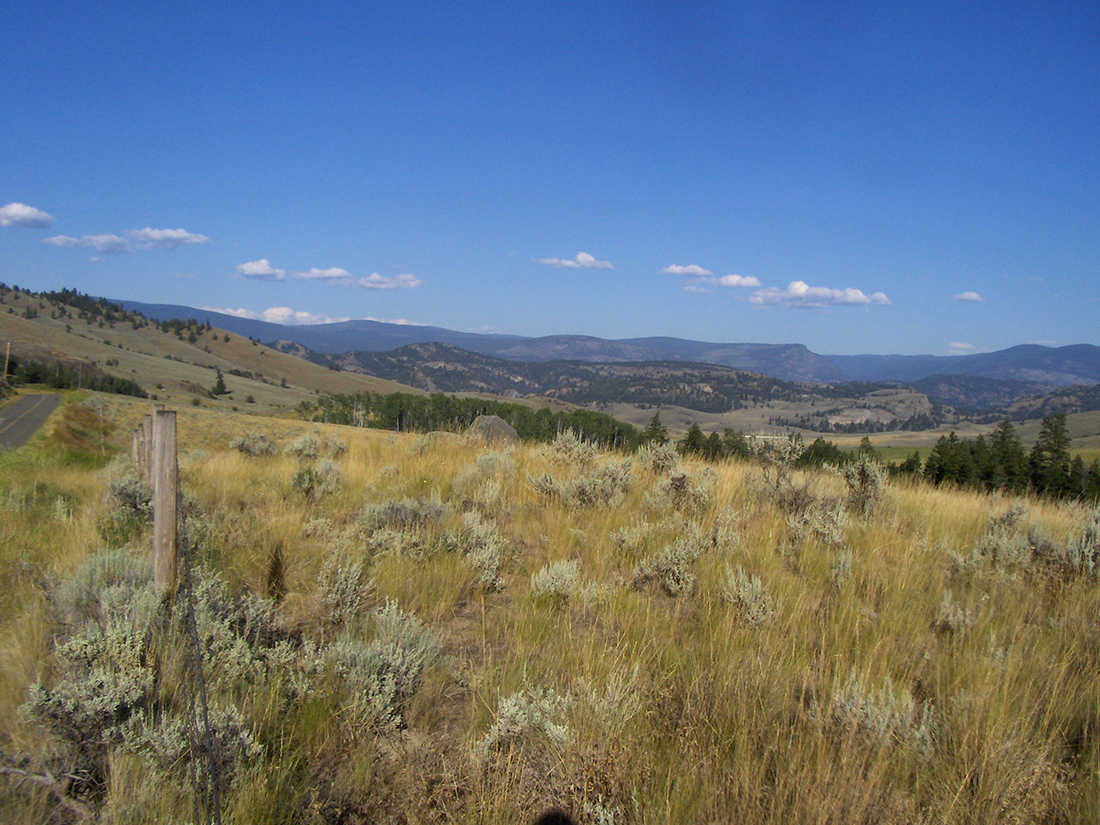VICTORIA – Workshops aimed at fireproofing BC farms and ranches seem to be working despite record-breaking fire seasons this year and last.
Cattle operations have been the farms the hardest hit by wildfires over the past two years, thanks in large part to their dependence on Crown tenures and forage resources. Ranches and farms from Alkali Lake to Agassiz have been impacted, making the need to prepare for wildfire an issue not limited to the Interior.
“It’s a continuing battle to protect family farms and ranches,” BC agriculture minister Lana Popham told media during a conference call August 22. “One of the things that we learned last year, which has been critically important to our response, is for producers to be registered in our Premises ID program.”
The program allows them to re-enter into evacuation zones and tend to their livestock, and has been working successfully this year. It was not only encouraged during last year’s wildfire season, but in workshops the BC Cattlemen’s Association supported to help farmers prepare for future seasons.
“[BCCA general manager] Kevin Boon was just an absolute all-star last year and continues to be this year, so making sure that those lines of communication work very quickly is definitely part of a more efficient response,” Popham said.
However, with this year’s fires affecting different areas of the province than last year, she said the learning curve continues as new areas receive first-hand experience of dealing with wildfire.
The back-to-back seasons have been a literal trial by fire for provincial emergency management personnel, nearly 4,000 of which have been deployed to fight the fires.
Recommendations of the independent report the province commissioned into handling of the devastating 2017 wildfire season emphasized the need for greater communication between crews and locals, and a greater receptiveness to local knowledge. While figures like Reg Steward continue to be invaluable in operations centres, it was often a different story on the ground.
Christine Coletta and husband Steve Lornie operate Okanagan Crush Pad in Summerland and were among the vintners offering thanks to fire crews for their work battling the Mount Eneas blaze at the end of July.
The road to Okanagan Crush Pad’s vineyard in Garnet Valley was blocked for several days, but provincial emergency management crews allowed owners to access properties and assist with fire suppression.
“The local firefighters had knowledge of our land and what tools we had on hand that could help them mount a successful battle,” Coletta said. “If we had not been able to return to the property daily, we could not have managed the irrigation system which played a key role in soaking the perimeter of our land.”
The fire crews were also able to draw water from an irrigation pond at the vineyard to fight the fire.
A pass system the local fire department introduced midway through the blaze echoed troubles reported in various locations last year, however. Clear protocols and communications, a key recommendation in the review of last year’s fire season, didn’t seem to exist.
“It would have been good to have a system in place that everyone knew of in advance. Procedures seemed to change daily,” Coletta said.
She feels local government and citizens need to take wildfire preparedness as seriously as other forms of disaster, so that affected residents and businesses are more resilient during and after a disaster.
“Wildfires are our new reality,” she said. “Each town and region needs to really look at a solid wildfire plan and communicate that out to citizens in high-risk areas along the lines of what some cities do in the way of earthquake preparedness.”
Photo courtesy of BC Wildfire Service


 Cariboo farm thrives with mentorship
Cariboo farm thrives with mentorship